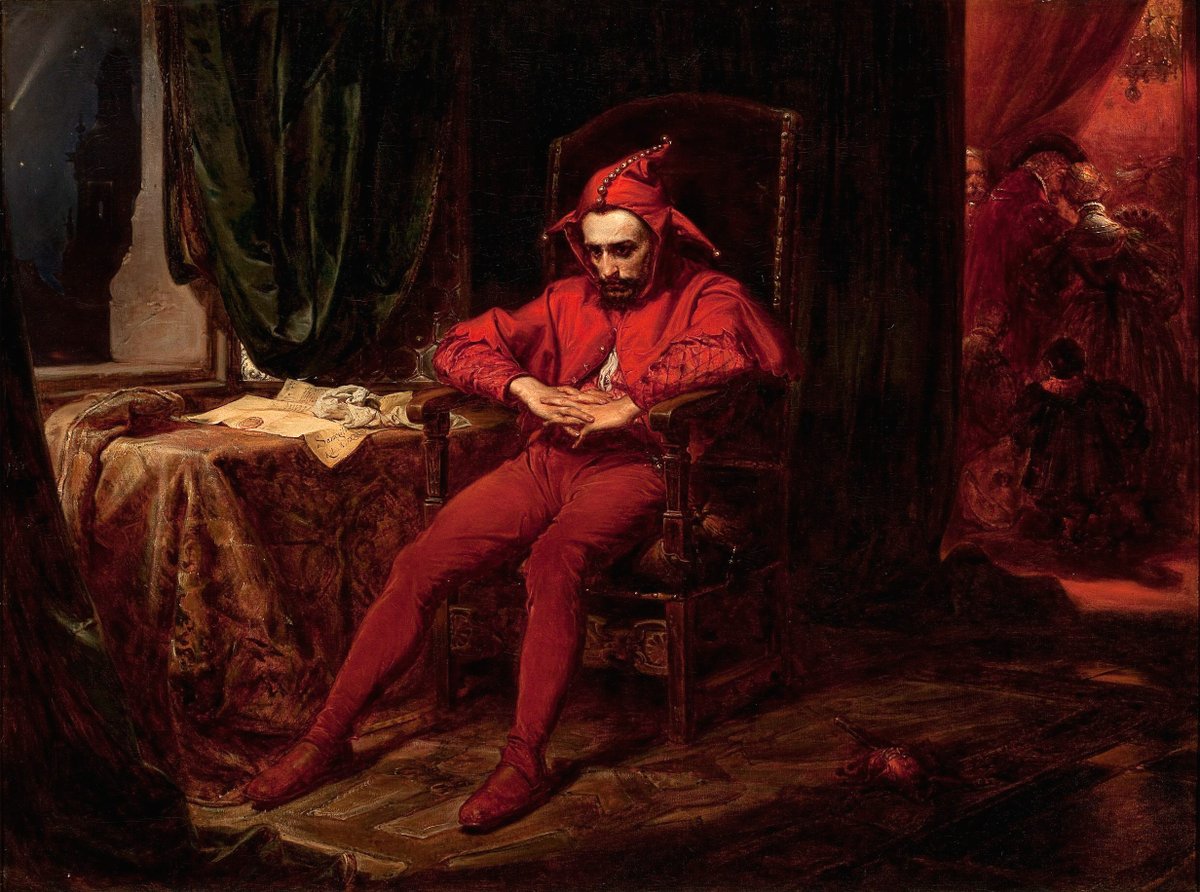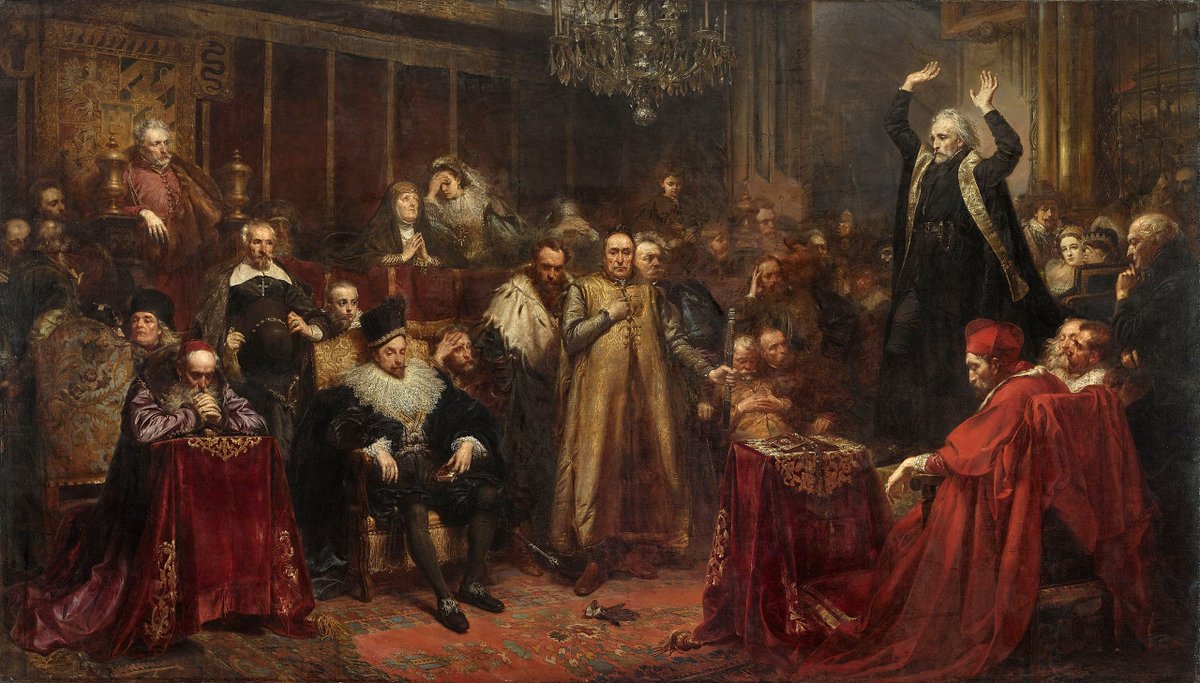G.K. Chesterton is one of my favorite writers.
Few can match his ability to make the absurdity of the world snap into focus, with the deft turn of a phrase.
A collection of some of my favorite quotes from Chesterton, the Apostle of Common Sense. 🧵👇
Which is your favorite?
Few can match his ability to make the absurdity of the world snap into focus, with the deft turn of a phrase.
A collection of some of my favorite quotes from Chesterton, the Apostle of Common Sense. 🧵👇
Which is your favorite?

“The person who is really in revolt is the optimist, who generally lives and dies in a desperate... effort to persuade other people how good they are.”
~G.K. Chesterton
1/
~G.K. Chesterton
1/

“In history... the old man is always wrong; and the young people are always wrong about what is wrong with him...
While the old man may stand by some stupid custom, the young man always attacks it with some theory that turns out to be equally stupid.”
~G.K. Chesterton
3/
While the old man may stand by some stupid custom, the young man always attacks it with some theory that turns out to be equally stupid.”
~G.K. Chesterton
3/

“The whole curse of the last century has been what is called the Swing of the Pendulum... that Man must go alternately from one extreme to the other...
When Man is alive he stands still.
It is only when he is dead that he swings.”
~G.K. Chesterton
4/
When Man is alive he stands still.
It is only when he is dead that he swings.”
~G.K. Chesterton
4/

“The modern city is ugly not because it is a city but because it is not enough of a city, because it is a jungle, because it is confused and anarchic, and surging with selfish and materialistic energies.”
~G.K. Chesterton
5/
~G.K. Chesterton
5/

“Reason is always a kind of brute force...
Those who appeal to the head rather than the heart, however pallid and polite, are necessarily men of violence.
We speak of ‘touching’ a man’s heart, but we can do nothing to his head but hit it.”
~G.K. Chesterton
6/
Those who appeal to the head rather than the heart, however pallid and polite, are necessarily men of violence.
We speak of ‘touching’ a man’s heart, but we can do nothing to his head but hit it.”
~G.K. Chesterton
6/

“You say grace before meals. All right.
But I say grace before the concert and the opera... and grace before I open a book, and grace before sketching, painting, swimming, fencing, boxing, walking, playing, dancing and grace before I dip the pen in the ink.”
~G.K. Chesterton
7/
But I say grace before the concert and the opera... and grace before I open a book, and grace before sketching, painting, swimming, fencing, boxing, walking, playing, dancing and grace before I dip the pen in the ink.”
~G.K. Chesterton
7/

“A dead thing can go with the stream, but only a living thing can go against it.”
~G.K. Chesterton
8/
~G.K. Chesterton
8/

“The free man is not he who thinks all opinions equally true or false.
That is not freedom but feeble-mindedness.
The free man is he who sees the errors as clearly as he sees the truth.”
~G.K. Chesterton
9/
That is not freedom but feeble-mindedness.
The free man is he who sees the errors as clearly as he sees the truth.”
~G.K. Chesterton
9/

“We shall soon be in a world in which a man may be howled down for saying that two and two make four... in which people will persecute the heresy of calling a triangle a three-sided figure, and hang a man for maddening mob with the news that grass is green.”
~G.K. Chesterton
11/
~G.K. Chesterton
11/

“Right is right, even if nobody does it.
Wrong is wrong, even if everybody is wrong about it.”
~G.K. Chesterton
13/
Wrong is wrong, even if everybody is wrong about it.”
~G.K. Chesterton
13/

“Impartiality is a pompous name for indifference, which is an elegant name for ignorance.”
~G.K. Chesterton
15/
~G.K. Chesterton
15/

“The act of defending any of the cardinal virtues has today all the exhilaration of a vice.”
~G.K. Chesterton
16/
~G.K. Chesterton
16/

“The new school of art and thought does indeed wear an air of audacity, and breaks out everywhere into blasphemies, as if it required any courage to say a blasphemy.
There is only one thing that it requires real courage to say, and that is a truism.”
~G.K. Chesterton
17/
There is only one thing that it requires real courage to say, and that is a truism.”
~G.K. Chesterton
17/

“There is not really any courage at all in attacking hoary or antiquated things, any more than in offering to fight one’s grandmother.
The really courageous man is he who defies tyrannies young as the morning and superstitions fresh as the first flowers.”
~G.K. Chesterton
18/
The really courageous man is he who defies tyrannies young as the morning and superstitions fresh as the first flowers.”
~G.K. Chesterton
18/

“An adventure is only an inconvenience rightly considered.
An inconvenience is only an adventure wrongly considered.”
~G.K. Chesterton
19/
An inconvenience is only an adventure wrongly considered.”
~G.K. Chesterton
19/

• • •
Missing some Tweet in this thread? You can try to
force a refresh



























